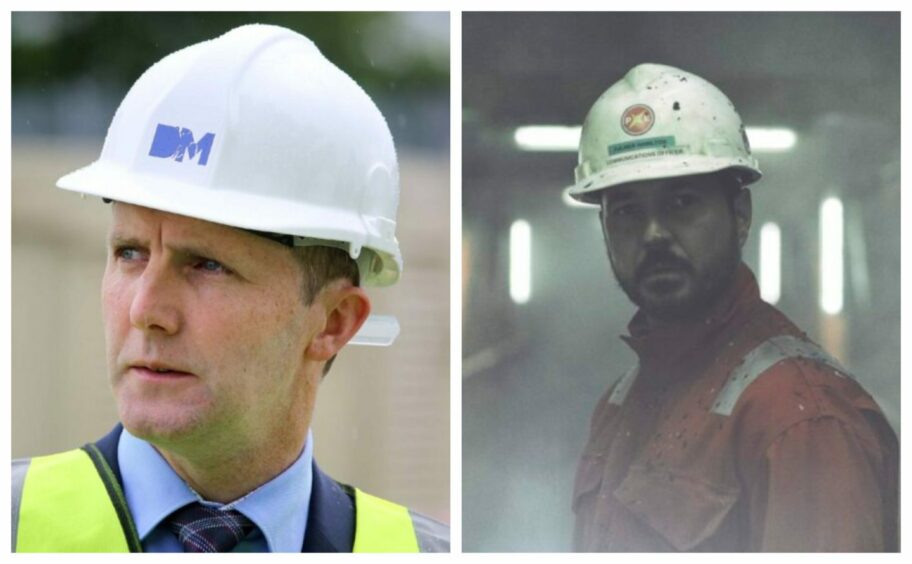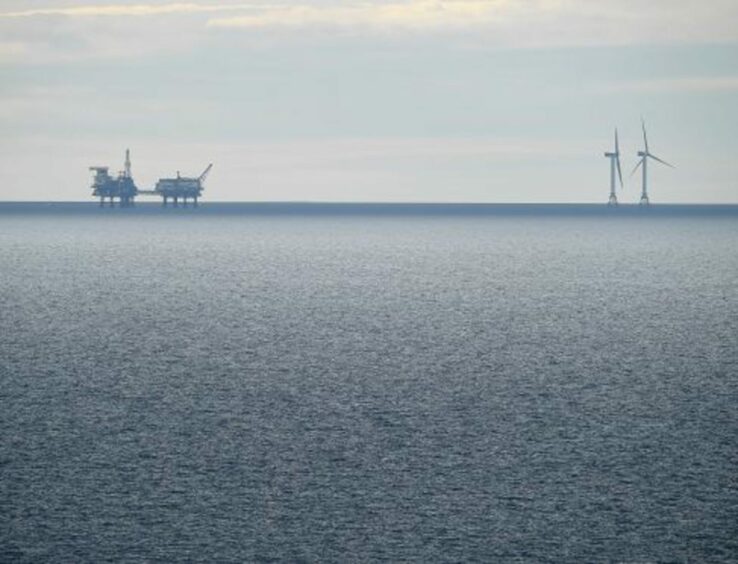 © Supplied by Allan Milligan/IJPR
© Supplied by Allan Milligan/IJPR It’s hard to tell which of the two North Sea-based dramas which premiered recently had more viewers watching through their fingers – supernatural TV show The Rig or the announcement of the Scottish Government’s draft Energy Strategy plan.
The cliffhanger of the latter was the proposal of a presumption against new exploration for North Sea oil and gas. Many reviewers were irate and as someone whose professional life has been centred on our oil and gas sector, it did cause an initial sharp intake of breath.
On reflection, though, I reached the conclusion that the draft Scottish Energy Strategy is an ambitious vision that needs to be taken seriously by all stakeholders, even if you do not agree with it all.
I work in a business with connections in all the moving parts of a changing energy sector, domestically and internationally. It’s increasingly futile to look at its sub-sectors – from renewables to nuclear – in silos. The energy transition must be taken as a whole, and the decarbonisation of the North Sea is part of the bigger picture.
So I’m not going to beat up the politicians on this one – bearing in mind that the Westminster windfall tax delivered the biggest recent kick to the sector, not Holyrood’s vision of the energy transition.
This is about our whole economy, and indeed our whole society, and it’s good to know where the Scottish Government stands, applauding the ambition to become a green powerhouse and keep an energy industry in the north-east. Skilled people will be in demand across the world. We need to be able to produce the jobs that will keep them here.
They are focusing on opportunities for Scotland and clearly do not want to hang around, producing what is effectively a route map for business innovation. In a country renowned for invention, do we really want to criticise a display of ambition?
This isn’t like the decline of shipbuilding. The springboard to the next phase of energy production exists and the challenge is to pull all of this together (and not throw the existing value and expertise of the oil and gas sector out with the sea water).
Of course, while the new strategy can influence UK energy policy, offshore oil and gas exploration is not devolved to Holyrood. The Scottish Government is also effectively curtailed by Westminster when it comes to the approval of major projects offshore. The delivery of such an ambitious policy will require extensive co-operation with the UK Government, and it remains to be seen if that will happen.
All stakeholders – in Westminster, Holyrood, or anyone involved in the energy industry in Scotland – need to have a robust, honest discussion around the reality of tackling the net-zero challenge, while achieving a vibrant world leading energy industry providing energy security.
And dialogue is not the only challenge to a successful transition, whatever that looks like.
The reality is that the transition is going to take a long time and the demand for oil and gas is not going away any time soon. Continued domestic production is not incompatible with net-zero and the wider public must be aware of where their energy comes from, the benefits of continued investment into the North Sea as part of our net zero commitments and the cost of not doing so – not least the economic and environmental cost of importing hydrocarbons.
We need to continue to deal with the short and medium-term reality of our energy needs, combining this with increased intensity of focus on areas such as carbon capture and storage and other technological advances. The oil and gas industry will continue to play a crucial role in the energy transition. It’s an industry moving forward sustainably at pace and this innovation and diversification requires investment and backing.
Meanwhile, fiscal policy must be in sync with the energy policy to provide the incentive for everyone to transition to green power, and we’ll also need extensive human resource to make any policy ambitions a reality.
We have a global emergency and massive ambition, but we don’t have a consenting framework to match. Add in the fact that we are working to very tight timescales and it is a given that our consenting process would need to be sped up dramatically.
Bringing it back to the The Rig, there is a lot of fog to lift before we know what’s going to happen though I’m still optimistic about the eventual conclusion, but it will not be without huge effort.


